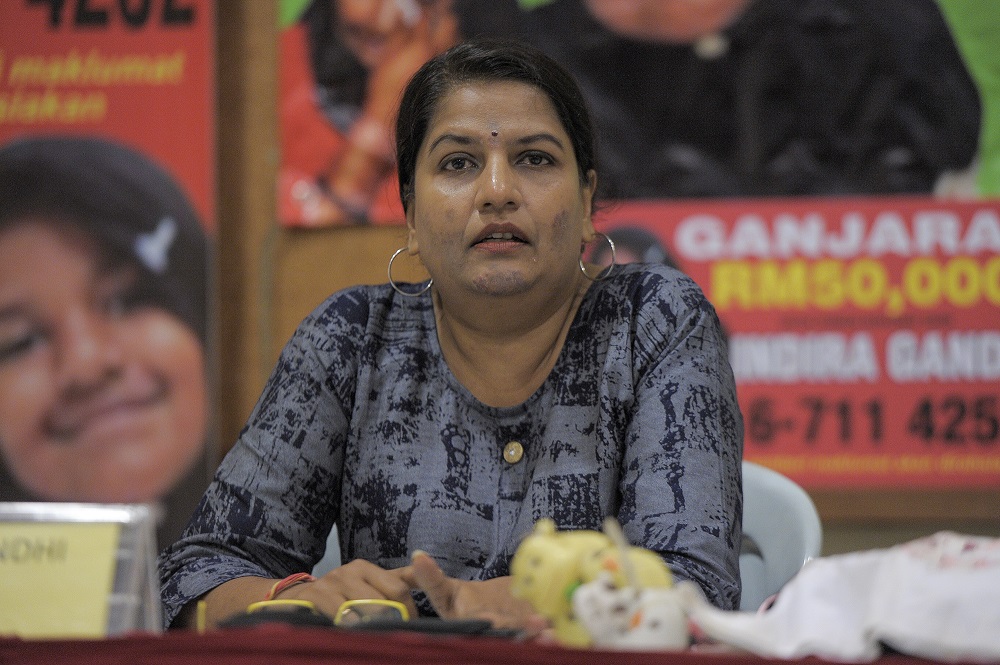KUALA LUMPUR, Jan 12 — Kindergarten teacher, M. Indira Gandhi is seeking answers from the Inspector-General of Police (IGP) to 48 questions pertaining to investigations on her Muslim convert ex-husband, Muhammad Riduan Abdullah, in a suit filed against the Royal Malaysia Police (PDRM).
The suit was filed pursuant to her claims that PDRM failed to execute the committal warrant to arrest Muhammad Riduan and bring back their 13-year-old daughter, who was abducted by the man, 12 years ago.
Indira filed the interrogatories application yesterday through the law firm Messrs Raj & Sach to obtain a court order for the IGP, as the first defendant, to answer the questions in written form via affidavit under Order 26 of the Rules of Court 2012.
In the application, Indira, among others, requested the IGP to answer questions pertaining to the probe, including the location of her ex-husband, formerly known as K. Patmanathan, who is alleged to be in southern Thailand.
Lawyer Rajesh Nagarajan, who is representing Indira, when contacted, said the court set January 14 for case management before Deputy High Court Registrar Idamasliza Maarof via e-review.
Indira, 46, as the plaintiff filed the suit on October 28 last year and named the IGP, PDRM, Home Ministry and the Government of Malaysia as the first to fourth defendants.
In her statement of claim, Indira claimed that the IGP had deliberately and negligently ignored the mandamus order from the Federal Court by failing to investigate or take appropriate action to return her daughter, Prasana Diksa, to her.
She claimed that all defendants had played a role in making decisions or giving orders to PDRM to execute the committal warrant against Muhammad Riduan as ordered by the Federal Court on April 29, 2016.
The plaintiff also claimed that the behaviour of all defendants had directly caused her separation from her youngest daughter to continue until today, and also caused Mohd Riduan to flee.
She is seeking general, aggravated and exemplary damages, as well as a declaration that the first defendant had committed tort of nonfeasance in public office, and the second, third and fourth defendants were also vicariously liable for the tort of nonfeasance committed by the first defendant. — Bernama



















